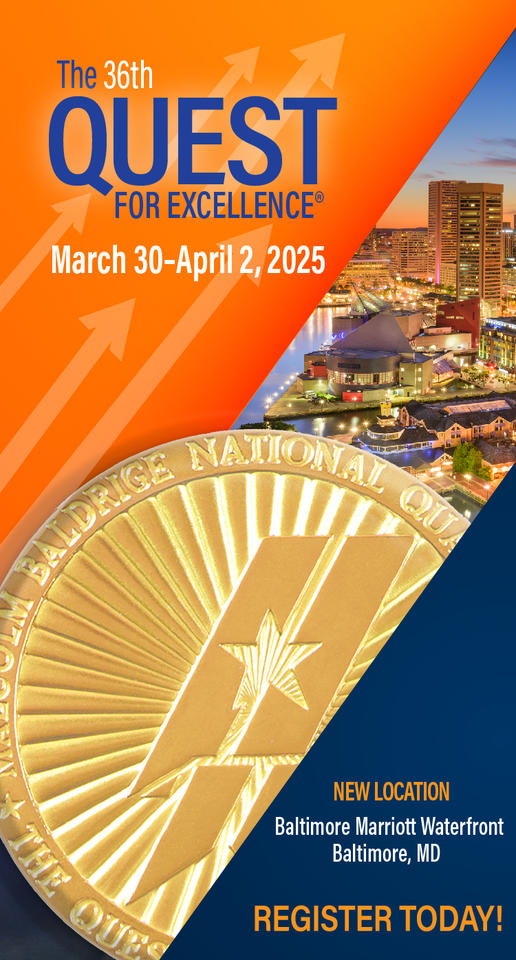Blogrige
The Official Baldrige Blog

Yes, I have a wicked dream. NO, not that definition of wicked. I mean wicked in the sense meant by scientists when they discuss “wicked problems.” Wicked problems are those that typically involve a combination of technical, social, and economic challenges. Wicked problems are daunting. They are complex with many interdependencies. Typically, their solution involves collaboration among people with different technical disciplines and different self-interests.
The realization that what I have had for years is a wicked dream hit me recently when I read an article in The July-August 2022 issue of American Scientist. The article was entitled “The World Needs Wicked Scientists.” The article is the basis for much of the information I present below.
My wicked dream is about a world in which every geographic community is a community of excellence. Why is creating a true community of excellence like solving a wicked scientific problem? Let me share some of the characteristics of a wicked scientific problem, and you will see the parallels to achieving communities that are very vigorous and resilient.
Wicked Problems
Wicked scientific problems are not narrowly defined by a need for interdisciplinary scientific research. They are shaped by broader challenges that impact society. Examples include curing cancer, addressing climate change, and solving population health or food insecurity.
Wicked problems:
- resist simple solutions
- create tensions among potential solvers
- have a political component
- are always changing or evolving
- are hampered by limited imaginations
- suffer from different perceptions of the basic problem being addressed
- are multicausal
- are connected to other wicked problems
- have interim solutions that are not good or bad, but better or the best for now
- are rarely solved completely
Wicked Problem Solvers
Wicked problem solvers are a unique group of interdisciplinary thinkers. They accept and celebrate interim successes. They enjoy collaborative thinking.
Wicked problem solvers:
- are action-oriented
- are not afraid to make mistakes and learn from them
- love a challenge
- recognize that they are key stakeholders, as well as solvers
- work well with a diverse group of collaborators and stakeholders
- are committed for the long term
- are adept at systems thinking
Communities of Excellence
Back to my wicked dream. Imagine a world in which every community is characterized by good health, no poverty, a vibrant economy, and a great quality of life. That is my wicked dream. Achieving that dream requires addressing wicked problems and requires wicked problem solvers meeting all the requirements described above.
Fortunately, there are now 25 pilot communities and many contributing community problem solvers who have taken up the challenge. They have banded together in a learning collaborative, Communities of Excellence 2026. I have been fortunate to serve on the faculty of this collaborative.
While all these communities know the challenges they face and the interim victories they have achieved, I believe the characteristics of wicked problems and problem solvers has helped me gain a new perspective on communities of excellence. Our challenge is just like many other wicked problems, and we are not alone in wanting to solve these problems.
There Is Progress

I recently returned from the Communities of Excellence 2026 Fall Conference. I returned refreshed and exhilarated by the progress I have seen. I saw communities that responded to crises, such as the pandemic, as a team and were there for their inhabitants with holistic solutions. They were building true community resilience. They each have a solid mission, vision, and values that guide their community leadership (elected and volunteer) and engage their community members in action. These communities have scorecards that allow them to measure their progress. They have strategies and action plans to achieve their objectives. (And many of them realized they were not as great as they imagined when they started the journey.)
Equally importantly, they have a framework document, based on the Baldrige Excellence Framework®, to guide their journeys. Furthermore, on August 9, 2022, the CHIPS and Science Act of 2022 was signed into law, authorizing communities as the seventh category eligible for the Malcolm Baldrige National Quality Award. This is the first big step toward the future implementation of this award category.
Would your community benefit from addressing their wicked problems? Consider joining the next cohort of Communities of Excellence 2026. In the meantime, get your community organized and explore some of the tools available to you through the Communities of Excellence 2026 website.
Join the Communities of Excellence 2026 Session at Quest!

The Quest for Excellence® Conference
Sunday, April 2–Wednesday, April 5, 2023 | #BaldrigeQuest
The conference will feature some new and exciting opportunities to learn role model best practices from nationally recognized thought leaders, former Award recipients, and representatives from other high-performing organizations.
COMMUNITIES OF EXCELLENCE 2026 SESSION
Wednesday, April 5
Following the Wednesday morning keynote, there will be a session showcasing the Communities of Excellence 2026.
Register Today!
About the author
Related Posts
Comments
Thanks Kay! I hope many more communities will accept this wicked challenge!






You may be aware of this, but in South Boston if someone asks, "How ya' doin'?" A frequent response is "Wicked pissa!" Don't know its origin, but that actually translates to "Doin' great!" So in that context, this is a wicked good blog!